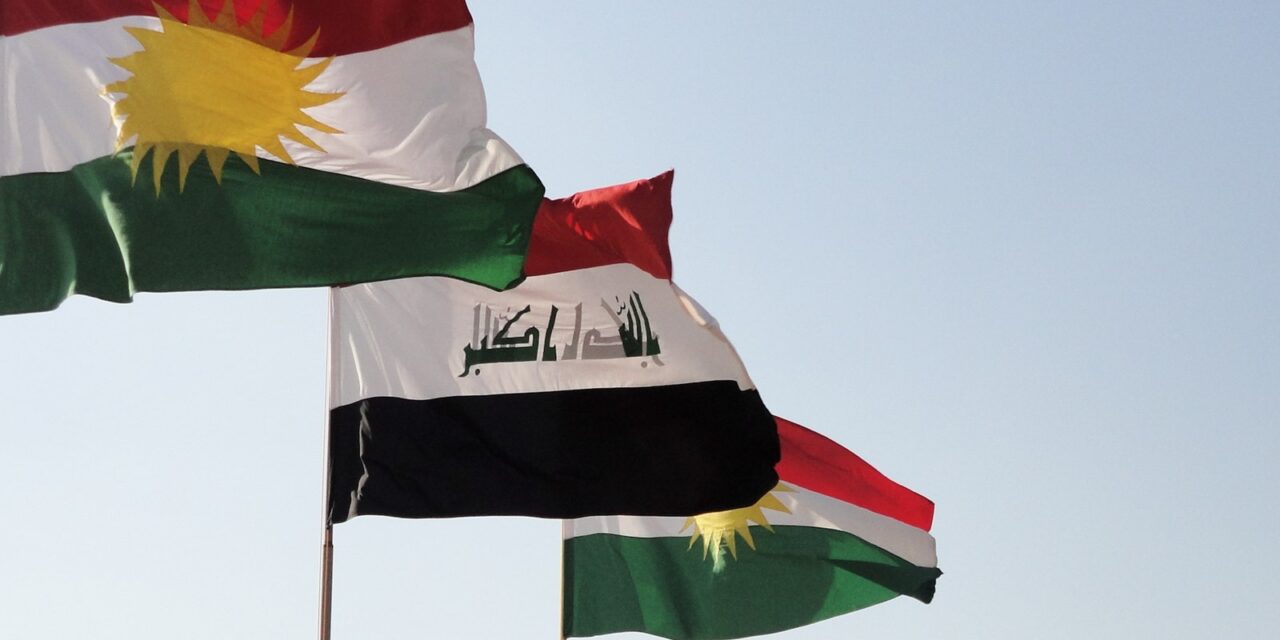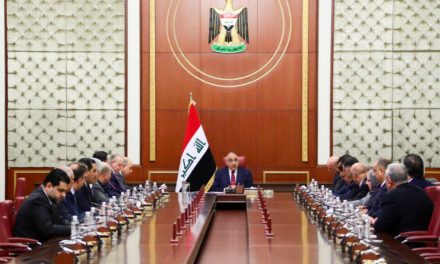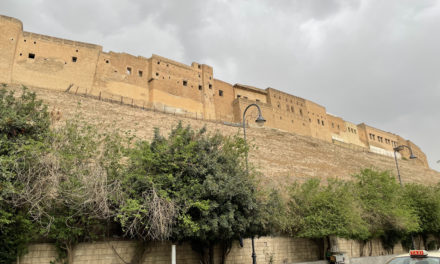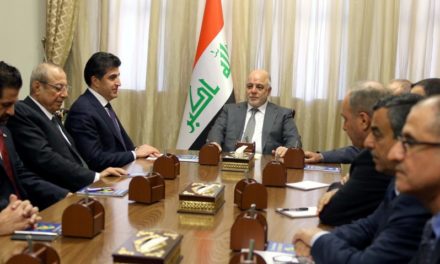(Photo: Giorgio Montersino)
The Federal Supreme Court (FSC) has issued multiple rulings that impact the nature of the relationship between the federal government in Baghdad and the semi-autonomous region of Iraqi Kurdistan. Many of these decisions, some of which date back to 2022, have been criticized by the Kurdistan Democratic Party (KDP). The KDP claims that they defy the federal principles that had been agreed upon during the post-2003 state-building negotiations. However, this sentiment is not shared by the other major Kurdish parties in Iraq, including the Patriotic Union of Kurdistan (PUK) and the New Generation Movement, which have been responsible for filing lawsuits at the FSC targeting the KDP. Understanding the politics at play reveals that it is not Iraqi federalism that is under threat, but rather the political strangle hold of the KDP on the Kurdistan Regional Government (KRG).
The governing structure of Iraqi Kurdistan was formed in the aftermath of the 1991 Iraqi uprising, when coalition forces enforced a no-fly zone that gave it de-facto autonomy from Saddam Hussein’s Iraq. This structure was codified in the 2005 Iraqi constitution. The idea of self-governance extends back to the 1970 Kurdish Autonomy deal between the Ba’ath party and Kurdish leadership and even further back to the formation of the modern Iraqi state when the occupying British appointed Mahmud Barzanji as the governor of Sulaymaniyah, only to have him declare himself the King of Kurdistan. From the onset of the modern state of Iraq, Kurds wanted more than self-governance within a federalist structure, but had to settle for that because of international pressures.
In the negotiations for a post-2003 Iraq prior to the war, Kurdish parties entered the discussion from a stronger position than the other opposition parties, largely due to their de-facto autonomy since 1991. This is not to say that they did not face their own difficulties, as Iraqi Kurdistan was not exempt from the debilitating sanctions placed on Iraq. In addition, it suffered during a bloody civil war from 1994 to 1998.
However, by 2003, the PUK and KDP were more organized and had the support of their local population. They were able to push for a federalized and decentralized state in the new Iraqi constitution. Moreover, their strength relative to Baghdad’s weakness, allowed them to push the very limits that they had designed. For example, although the constitution places foreign policy solely in the hands of the federal government, the Kurdistan Regional Government (KRG) maintained representative offices abroad with no connection to the Ministry of Foreign Affairs.
Their position of strength would not last, however as the KRG and its two major parties were weakened after the 2014 war on Da’ish and the subsequent failure of the independence referendum held on September 25, 2017. Since then, Baghdad has been able to reassert its strength in several domains. For example, it has extended military control over disputed territories and limited the KRG’s oil sales, which had financed their ability to act in defiance of Baghdad. The KDP has since claimed that these actions are a threat to federalism, when in fact they are simply a realignment that occurred as Iraq became more stable.
While Iraq has yet to pass an oil and gas law, the FSC ruled that the KRG cannot sell oil from Iraqi Kurdistan independent of the federal government. While both sides have argued the constitution is in their favour, the Iraqi court’s decision was in line with the decision of the International Chamber of Commerce’s International Court of Arbitration in Paris, which was issued March 2023.
The other major case that the KDP took offense to was the prevention of Hoshyar Zebari from running for president of Iraq following the 2021 national election. The court’s explanation was that he was unfit for the position due to having been removed as finance minister due to corruption allegations by parliament in a vote of no confidence in 2016. Although an argument could be made that former defence minister Khalid Al-Obeidi, the only other minister who has been voted out of his position, was able to later run in general elections, Obeidi did not taken an active role in dividing the country. This was clearly the sore spot for the FSC and the crux for its ruling against Zebari who had been a leading figure on the committee which organized the 2017 independence referendum. It is clear that Zebari was an unfit candidate for the presidency, but the court should have explicitly said so.
This year, the FSC issued two more rulings. First, it ruled that KRG public sector employees must be paid by the federal government, like federal government employees outside Iraqi Kurdistan. The court also abolished the quota seats reserved for minorities in the KRG parliament. Although the former is a huge blow to the autonomy of the KRG, it is important to note that it was Kurds who filed this lawsuit in Baghdad because the KRG has been struggling to make payments since 2014. The ruling places a financial burden on Baghdad, as it increases the monthly wage bill, which is already untenable during oil price slumps. Had the KRG not sold oil unilaterally in 2013, it would still be receiving a large share of the Iraqi budget (17 percent versus the current 12 percent) and would be able to meet its payroll demands.
The abolition of quota seats reserved for minority groups at the level of a regional parliament raises the much bigger fear that these seats may later be abolished in the federal parliament. Although the Iraqi constitution ensures the political representation of minorities, it does not make mention of any quota except the 25 percent quota for women. This is a very serious concern for Iraq’s beleaguered minorities, but it has no bearing on the issue of federalism. Moreover, these seats – in both the regional and federal parliaments – have been manipulated by powerful political parties, especially the KDP, to serve their own interests. Many of the parliamentarians who win these seats are regarded as proxies of the powerful parties, by their local communities. In fact, the reason that the PUK took this issue to the FSC is because they believed the quota seats gave the KDP an unfair advantage in the regional elections, given that the seats were in “KDP territory”.
It is inevitable that Baghdad will get caught up in a contest between the KDP and PUK. What makes the situation more alarming than ever, from the KDP’s perspective, is the fact that the federal government has never been this stable and unencumbered by existential crises in post-2003 Iraq. A natural consequence of Baghdad’s increased strength and stability is that it will push back against overreach from the KRG. In reality, the KRG has been operating as more than just a semi-autonomous entity, especially in conducting independent security, foreign policy, and military operations. As MIT’s professor Roger Petersen recently argued at an event held by the Center for a New American Security, “The big problem is that the KRG is some place between an independent country and a federal district…I don’t know what kind of constitution can make sense of that. It’s nothing I teach in political science.”
It is easy for outside observers, who have become used to this mode of operation, to see this as a regression of federalism in Iraq. Arguably, the opposite is occurring, where the KRG is now being pressured to concede some of its extra-constitutional and previously unchallenged privileges. Nevertheless, the broader issue of Kurdish aspirations and fears animates many Kurds, who find it difficult to trust a strong federal Iraqi government. Iraq’s history with its Kurdish population is dark and bloody with two civil wars waged in the 1960s and 1970s in addition to the genocidal Anfal campaign in the 1980s, which included the horrific Halabja chemical attack.
These fears are genuine, but they have been appropriated by the KDP, who are not exactly the torchbearers of democracy. In fact, since the establishment of the KRG in 1992, they have not been able to hold any elections on time. This upcoming June election is no exception as it is two years overdue. At the end of the day, the KDP needs to be held to the same democratic and federal standards as everyone else in Iraq.
Today, Iraq not only constitutionally recognizes Iraqi Kurdistan, but Iraqis from across the country accept and respect its special status, including tourists who have to undergo a humiliating and oxymoronic process of obtaining an Iraqi Kurdistan residency to enter it. Moreover, the political class in Baghdad has no desire to see the KRG dissolved. This does not mean that they are willing to give up the disputed territories or want the KRG to operate independently, but they do not have the appetite to dismantle the KRG and be responsible for the complexities and issues that come with running it. This is a far cry from prior Iraqi governments.
The identity, language, and history of the Kurds of Iraq is acknowledged in the Iraqi constitution and by non-Kurdish Iraqis. Kurds may ultimately want independence, alongside their co-ethnics from Turkey, Iran, and Syria, but the political reality has not changed from what it was a century ago. Consequently, federalism provides the best solution for everyone in Iraq, both for those who want the most autonomy for Iraqi Kurdistan, and those who prioritize Iraq’s unity. This delicate balance should not be disrupted due to the KDP’s dwindling control of the KRG.

Hamzeh Hadad
Hamzeh Hadad is a visiting fellow at the European Council on Foreign Relations and an adjunct fellow at the Center for a New American Security. In 2021, Hadad was an adviser to the president of the Trade Bank of Iraq.










